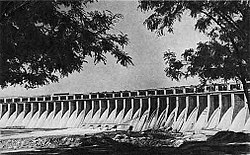
Lần trước là Nhớ Hà Nội, lần này là Nhớ Sài Gòn. Entry này dành tặng tất cả những ai yêu Sài Gòn, nhất là những bạn Sài Gòn mà tôi rất quý.

1. Khánh Ly hát trong Album "Bông hồng dành cho người ngã ngựa" (Mười bông hồng)
2. Khánh Ly hát tiếng Nhật trong Album Ướt Mi

3. Khánh Ly hát trong Live show 2007- Em còn nhớ hay em đã quên tại Paris
4. Bonus track: Tiếng hát Xuân Phú- một fan ruột của Tuấn Ngọc


Ku1ec3 cu0169ng lu1ea1, bu00e0i Nhu1edb Hu00e0 Nu1ed9i cu1ee7a Hou00e0ng Hiu1ec7p vu00e0 Em cu00f2n nhu1edb hay em u0111u00e3 quu00ean cu1ee7a Tru1ecbnh giu1ed1ng nhau u0111u1ebfn ghu00ea gu1edbm, u1edf chu1ed7 cu1ee9 mu1ed7i lu1ea7n nghe hai bu00e0i Nhu1edb nu00e0y lu00e0 chu1ec9 muu1ed1n bu1ecf Tu00e2y vu1ec1 Ta. Cu00f2n nu1eefa, hai bu00e0i nu00e0y tuy vu1eady mu00e0 ru1ea5t khu00f3 nhu1edb lu1eddi cho chu00ednh xu00e1c. u0110u1ebfn cu1ea3 cu00e1c nghu1ec7 su1ef9 cu00f3 bu1ea3n lu0129nh su00e2n khu1ea5u vu00e0 hu00e1t nhu1eefng bu00e0i hu00e1t nu00e0y nhu01b0 bu00e0i ruu1ed9t cu1ee7a mu00ecnh, u1ea5y vu1eady mu00e0 vu1eabn cu1ee9 lu1eddi nu1ecd xu1ecd lu1eddi kia khi hu00e1t. u1ede Nhu1edb vu1ec1 Hu00e0 Nu1ed9i, hu1ea7u nhu01b0 ai cu0169ng hay nhu1ea7m, khu00f4ng biu1ebft khi nu00e0o thu00ec hu00e1t Nhu1edb phu1ed1 thu00e2m nghiu00eam, khi nu00e0o thu00ec hu00e1t Nhu1edb Phu1ed1 Quang Trung... u1ede Em cu00f2n nhu1edb... thu00ec khu00f4ng nhu1edb lu00fac nu00e0o lu00e0 Nhu1edb Su00e0i Gu00f2n, lu00fac nu00e0o lu00e0 Nhu1edb u0111u01b0u1eddng du00e0i... Hu00f4m tru01b0u1edbc u0111i xem Khu00e1nh Ly cu0169ng thu1ea5y Cu00f4 hu00e1t nhu1ea7m lu1eddi... Xem video clip du01b0u1edbi vu00e0 thu1eed xem mu00ecnh cu00f3 phu00e1t hiu1ec7n ra khu00f4ng nhu00e9.
Cu00f2n u0111u00e2y lu00e0 lu1eddi tu00e2m su1ef1 cu1ee7a Khu00e1nh Ly vu00e0 tou00e0n bu1ed9 u00e2m thanh bu00e0i Em cu00f2n nhu1edb hay em u0111u00e3 quu00ean.
Tru00edch bu0103ng u00e2m thanh "Khu00e1nh Ly- u00c1i Vu00e2n in Paris- 2007- TMH collection
/p>

Acknowledgement: Cảm ơn đồng chí Huy và đồng chí Vũ cho tôi mấy tấm ảnh nhé!




 (Hồng Nhung- 1989)
(Hồng Nhung- 1989)






















Comments
(5 total) Post a CommentTango ..tuyệt anh ạ!
Tuesday November 13, 2007 - 04:29pm (ICT) Remove Comment
Em thich ban nam 1980.
Tuesday November 13, 2007 - 06:34pm (ICT) Remove Comment
Giọng hát ma mị Khánh Ly!!!
Anh toàn sưu tập đồ độc và quý thôi ;))
Tuesday November 13, 2007 - 09:49pm (ICT) Remove Comment
Bài này mình thấy rất lạ (về lời). Cứ như một fairy tale. Nó rất Tây, đâm ra mới đầu cứ nghĩ là một dạng phỏng nhạc kịch hoặc phổ nhạc Tây.
Wednesday November 14, 2007 - 04:38pm (ICT) Remove Comment
anh oi, bao gio thi` anh post Vu nu khoa tha^n vay
Wednesday November 14, 2007 - 09:07pm (ICT) Remove Comment
1. Tiếng hát Khánh Ly trong Album "Hoàng Thi Thơ 1- Rước tình về với quê hương" thu âm tại Sài Gòn trước 1975
2. Tiếng hát Khánh Ly trong Album "Vó ngựa trên đồi hoang" thu âm tại Mỹ trong thập niên 1980
3. Tiếng hát Khánh Ly trong Thúy Nga Video thu âm đầu thập niên 1990
Monday November 12, 2007 - 09:00pm (EST) Edit | Delete
Next Post: NGƯỜI THỢ SĂN VÀ ĐÀN CHIM NHỎ (November 13, 2007) Previous Post: Liên Xô đi (November 07, 2007)
Comments
(3 total) Post a Commentcái tin này có vẻ hay:))
Monday November 12, 2007 - 07:13pm (ICT) Remove Comment
@ Huy: tin gi,
Monday November 12, 2007 - 11:14pm (EST) Remove Comment
ẶC ẶC,SAO BÁC NHANH THẾ....Cứ như ma xó:))cái tin bài này do HTT&NTM cộng tác ấy!
Monday November 12, 2007 - 07:15pm (ICT) Remove Comment